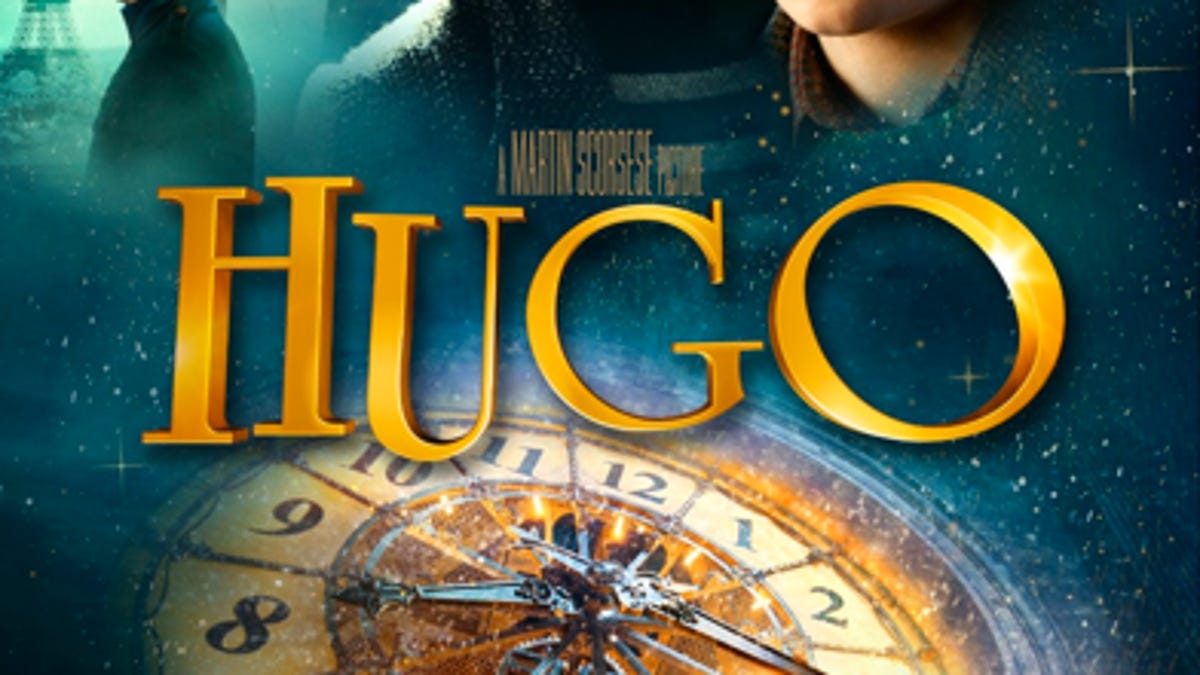Why 'Rango' and 'Hugo' won at the Oscars
With no Pixar film to beat, 'Rango' won the Academy Award for best animated feature, while "Hugo" won for best visual effects. Both victors show things are changing in Hollywood.

If there's been one thing you could count on every year since the Academy Awards started honoring animated features, it's that Pixar would walk away with the Oscar. Through last year, six of the studio's eight films won golden statuettes.
But Pixar's 2011 entry, "Cars 2," a box office success but a critical failure, not only didn't win on Sunday, it wasn't even nominated. And that meant a golden opportunity for a slew of other animated filmmakers.
In the end, it was "Pirates of the Caribbean" director Gore Verbinski's "Rango" that emerged with the Oscar, beating out "A Cat in Paris," "Chico & Rita," "Kung Fu Panda 2," and "Puss in Boots."
A lot of people liked "Rango" and it broke ground with its realistic approach to making an animated Western.
In making the film, Verbinski "wanted to be able to smell the breath of the characters," Kevin Martel, the film's associate animation supervisor, told CNET last year. "The feeling was that if you were to take a deep breath, you'd inhale all that dust and dirt, and you'd probably start coughing."
And though "Rango" clearly succeeded with that approach, the movie didn't stand out from the rest of the field the way that, say, Pixar's "Toy Story 3" did a year ago, nor was it a major box office blockbuster. So the question is, in a year where there wasn't a no-doubt-about-it animated film, is there a way to tell why "Rango" won?
With all due respect to Verbinski and the team at Industrial Light & Magic that applied to "Rango" the visual effects tricks it generally uses on live action movies, the film's Oscar win probably wouldn't have happened if "Cars 2" had been as well loved as most of Pixar's other films have been.
But that said, "Rango" was a success that managed to win over the many different constituencies among the Academy of Motion Picture Arts and Sciences--the cinematographers, the actors, the animators, and more. "If you look at 'Rango,' a lot of filmmaking disciplines are well represented," said David Cohen, an editor at Variety. "That movie is beautifully lit, the costuming is creative, those animated characters actually act pretty well, the production design is gorgeous, [and] the writing is eccentric. It's not the same old family pablum."
Indeed, Cohen said that he'd fully expected "Rango" to come away with the win. The big surprise in the animated feature category this year, Cohen said, was that "Cat in Paris" and "Chico & Rita" nabbed nominations but Steven Spielberg's "The Adventures of Tintin," which had beautiful animation based on performance capture, didn't.
Cohen said that it's always difficult to explain why the Academy votes the way it does, particularly because "they don't vote as a bloc [and] there's not a cabal here." But he said "Tintin" was likely snubbed because, in his opinion, "I think animators in general, and the animation branch of the Academy in particular, really don't much care for performance capture."
'Hugo' wins for visual effects
Some years, there's simply no doubt about which film will win the Oscar for best visual effects. In 2010, for example, there probably wasn't a person in Hollywood who thought any movie but James Cameron's "Avatar" would win.
This year, there was no "Avatar," and in the end, Pixomondo's Rob Legato and his team won for their visual effects work on Martin Scorcese's "Hugo."
This was just the second year that the Academy has picked five nominees in the category--there had been three in the past--and that was in part, Cohen explained, because the state of visual effects hadn't yet advanced to the point where there were five films each year that deserved to win. "One reason they were slow to move to five," Cohen said, "is that there were worries inside the [Academy's] visual effects branch that if they had five, an unworthy film [could] win."
But now, Cohen added, that's no longer true. The field is much deeper, and "the difference between the first best visual effects [film] and the sixth or seventh is pretty small."
Cohen said he had expected "Rise of the Planet of the Apes," with visual effects by "Avatar" winner Joe Letteri and his team at Weta Digital, to snag this year's Oscar. But he also said he wasn't surprised that Legato won for "Hugo." In fact, Cohen said that either "Hugo," "Rise of the Planet of the Apes," or "Transformers: Dark of the Moon" would have been unsurprising choices.
But "Hugo" surely deserved to win, in part because of the way Hollywood may finally recognize that visual effects are an art on par with older specialties like cinematography or sound editing.
"What's interesting to me about 'Hugo' winning for visual effects," Cohen said, "is that it seems to me that what was being recognized was the beauty of the work, and not the scale and innovation of the work. And visual effects [Oscars] have tended to go more for scale and innovation rather than beauty. It's probably a sign that the category is becoming more of a normal category."

